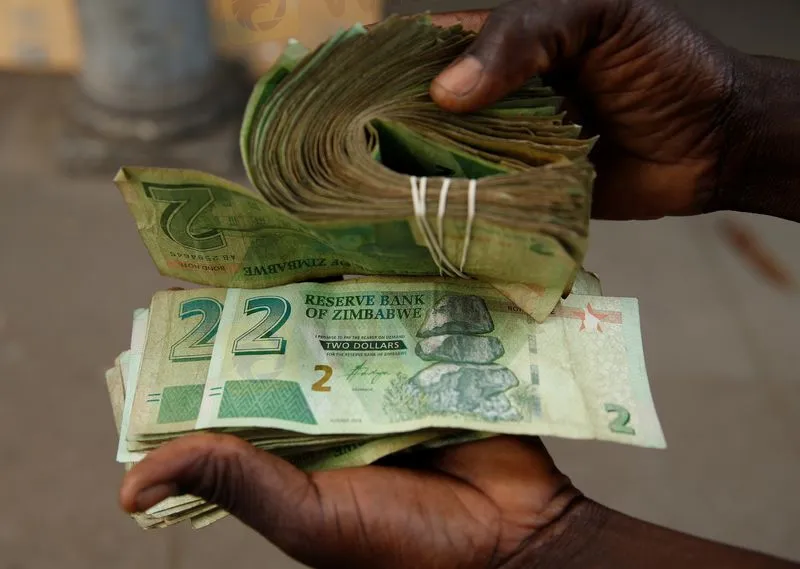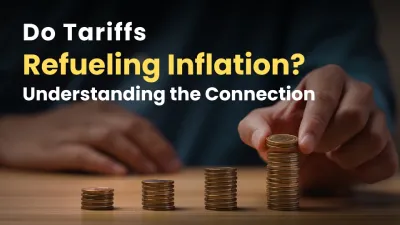简体中文
繁體中文
English
Pусский
日本語
ภาษาไทย
Tiếng Việt
Bahasa Indonesia
Español
हिन्दी
Filippiiniläinen
Français
Deutsch
Português
Türkçe
한국어
العربية
Zimbabwe suspends bank lending in bid to arrest currency decline
Abstract:The devaluation of theZimbabwedollar's black market exchange rate, which is used in most financial transactions in the economy, has been driving up inflation.

Zimbabwe's government on Saturday ordered banks to stop lending with immediate effect in a move Harare said was designed to stop speculation against the Zimbabwean dollar and was part of a raft of measures to arrest its rapid devaluation on the black market.
The southern African country reintroduced a local currency in 2019 after abandoning it in 2009 when it was hit by hyperinflation.
However, the Zimbabwean dollar, which is officially quoted at 165.94 against the U.S. dollar, has continued to slide on the black market, where it is trading between 330 and 400 to the greenback.
The black market exchange rate has moved from about 200Zimbabwedollars at the beginning of the year.
President Emmerson Mnangagwa on Saturday announced measures he said were meant to arrest the currency's depreciation, which he said threatenedZimbabwe's economic stability.
“Lending by banks to both the government and the private sector is hereby suspended with immediate effect, until further notice,” Mnangagwa said in a statement.
He accused unnamed speculators of borrowingZimbabwedollars at below-inflation interest rates and using the money to trade in forex.
Other measures include an increased tax on forex bank transfers, higher levies on forex cash withdrawals above $1,000, and the payment of taxes which used to be charged in forex in local currency.
The devaluation of theZimbabwedollar's black market exchange rate, which is used in most financial transactions in the economy, has been driving up inflation.
Year-on-year inflation quickened to 96.4% in April, from 60.6% in January.
For more Forex news, please download WikiFX- the Global Broker Regulatory Inquiry APP.
Disclaimer:
The views in this article only represent the author's personal views, and do not constitute investment advice on this platform. This platform does not guarantee the accuracy, completeness and timeliness of the information in the article, and will not be liable for any loss caused by the use of or reliance on the information in the article.
Read more

Are We in a Retracement Or the Start of a Financial Collapse?
As markets fluctuation in uncertain times and headlines grow darker, investors are left asking a crucial question: Is this a temporary downturn or something far worse? The terms bear market, recession, and depression are often thrown around interchangeably, but they represent very different levels of economic pain. Read this article to understand the differences between all three.

Why Fed Keeps Interest Rates Unchanged, How Does It Affect To Forex Market?
Fed keeps interest rates at 4.25%–4.50%, impacting forex market. Dollar may rise as tariffs loom. Explore why rates unchanged and forex effects.

Do Tariffs Refueling Inflation? Understanding the Connection
Investigate how tariffs impact inflation. Learn how trade barriers influence prices and the broader economic landscape.

Will Trump's Trade Policies Fuel Inflation? BlackRock Warns of Economic Risks
Bitcoin and crypto prices plummet as recession fears and inflation warnings shake markets. Experts warn of prolonged economic challenges ahead.
WikiFX Broker
Latest News
eXch Exchange to Shut Down on May 1 Following Laundering Allegations
How a Viral TikTok Scam Cost a Retiree Over RM300,000
FCA Proposes Simplifying Investment Cost Disclosure for Retail Investors
JT Capital Markets Review
Fresh Look, Same Trust – INGOT Brokers Rebrands its Website
Beware of Gold Bar Investment Scams: Rising Threats
Finalto Teams Up with Alphaville for 2025 London Quiz
Elites Gather in Taipei to Forge a New Forex Ecosystem
Kraken Launches Forex Perpetual Futures on Kraken Pro Platform
WeTrade Secures CySEC License to Expand EU Trading Services
Currency Calculator


